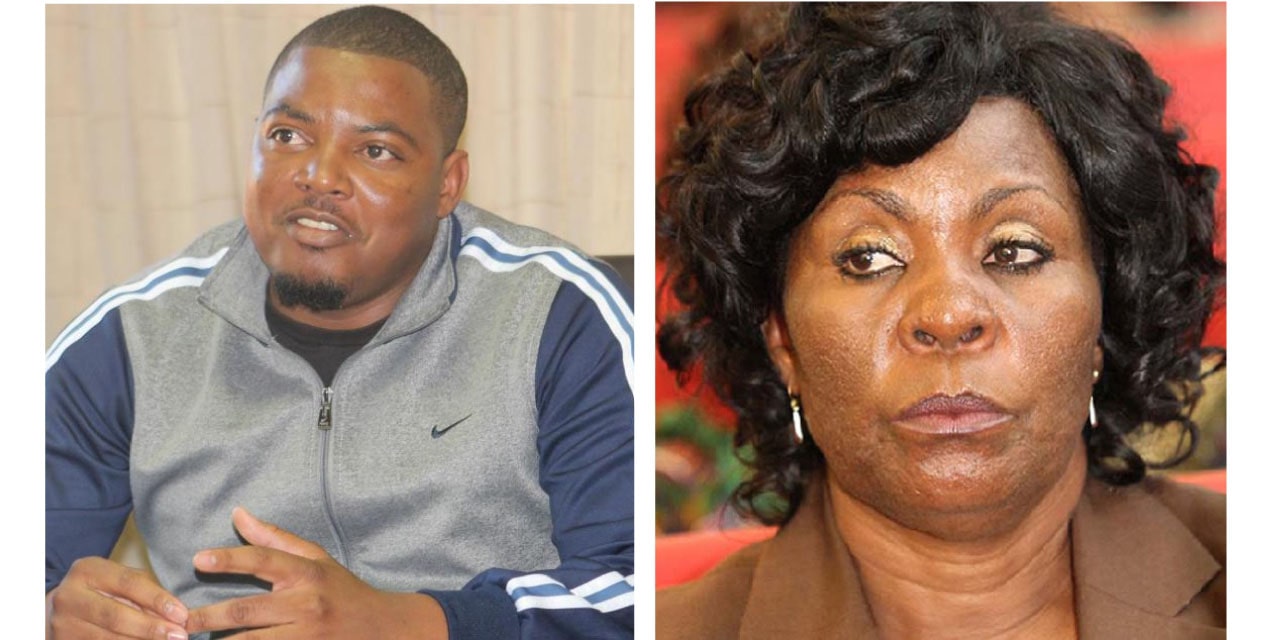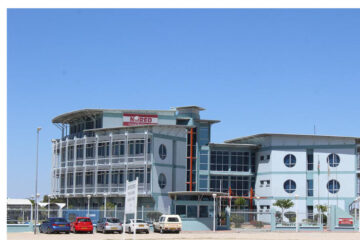Staff Reporter
Benhard Kavau, the Secretary General of the Student Union(SUN) said ministers and the education ministry are to be blamed for the poor performance of the grade 11 and Advanced Subsidiary level learners. He has since called on leaders to stop foreign travels and to rather invest money into the educational systems.
“The government especially those ministers need to stop with all those European trips where they are claiming Subsistence and Traveling (S&T) perhaps they should start attending virtual meetings and the money which they are wasting on flight tickets should instead be invested in education,” he said.
According to him, those that are in positions to make decisions are the ones to blame, adding that factors such as the Universal Primary Education funds which the government distributes to schools is only distributed around June, rather than January. This in turn affects operations, he stressed.
This comes after the Minister of Education, Arts and Culture Anna Nghipondoka released the Namibia Senior Secondary Certificate Ordinary (NSSCO) level results last Friday. According to the results, only 8 133 pupils qualified for advanced subsidiary level from 38 019 (21,4%) candidates.
Meanwhile the Ombudsman, Basilius Kasera has expressed dismay at the newly implemented Education curriculum, terming it a failure, which, if not corrected soon will continue to fail grade 11s and Advanced Subsidiary level learners.
“This is a system failure, one that will continue to wield these kinds of results for years to come, until we correct it. The education system we now have is designed to fail our children because we have not availed the needed resources to actualise it,” he said.
Duminga Ndala, Lead Youth Commander of the Landless People’s Movement Youth Command Element shared the same sentiments.
“The reality is our curriculum is compromising the quality of our education sector and the quality of learners we are producing. Our teachers are not well equipped to deliver quality lessons due to a lack of resources and support from the Ministry. Government schools are crowded as a result of the Teacher-Learner ration not being resolved. Lastly there is a lack of monitoring and performance systems to deal with the poor performance of Teachers, Heads of Departments and Principals. The lack of these mechanisms have enabled some of these players to neglect their responsibilities,” she said.
Affirmative Repositioning (AR) movement, co-founder and head of special programmes George Kambala on his part said the policy makers ought to be accountable for the high failure rate.
“The blame is mostly on the policy makers and they are the ones to be held accountable for this. Not only your minister but the senior education officers and directors. The problem also comes when the president appoints minsters who don’t go back to the drawing board to understand what the previous implemented system has been doing to the education system. There is also no performance management system that will enable everyone to be held accountable. I don’t blame the teachers because they are overworked, under paid and don’t have enough resources. For instance, some schools have no labs,” he said.
Moreover, he said it’s a common practice every year in the ministry where teachers are blamed for the poor performance of the students yet it’s the ministry that employs the teachers.
A teacher from Academia Secondary school, who spoke on condition of anonymity echoed the same sentiments, adding that the teaching and learning time allocated is not sufficient.
“For the AS level, the time was very short. The students only started lessons in March and in May to June until the holidays and they wrote mock exams in August. A month and weeks later they wrote final exams. The learners only had just over 2 months of classes the rest was just examinations. How does one assess someone that you have not taught?,” she remarked.
However, SWAPO Youth League Secretary Ephraim Nekongo cautioned civil servants in the ministry.
“We warn the salary collectors in the Ministry of Education, Arts & Culture while failing to honour their contractual agreement, and who seemingly have no will whatsoever, to educate a Namibian child. It cannot be business as usual, that we turn a blind eye as the future of our country is thrown into disarray,” said Nekongo.
The results indicate that out of 38 019 full-time candidates who sat for the NSSCO examinations, only 5 812 candidates scored at least 25 points to qualify for admission into tertiary institutions.
Contacted for comment, NANTU Secretary Loide Shaanika said she could not comment on the matter until Wednesday, when they host a press conference.




